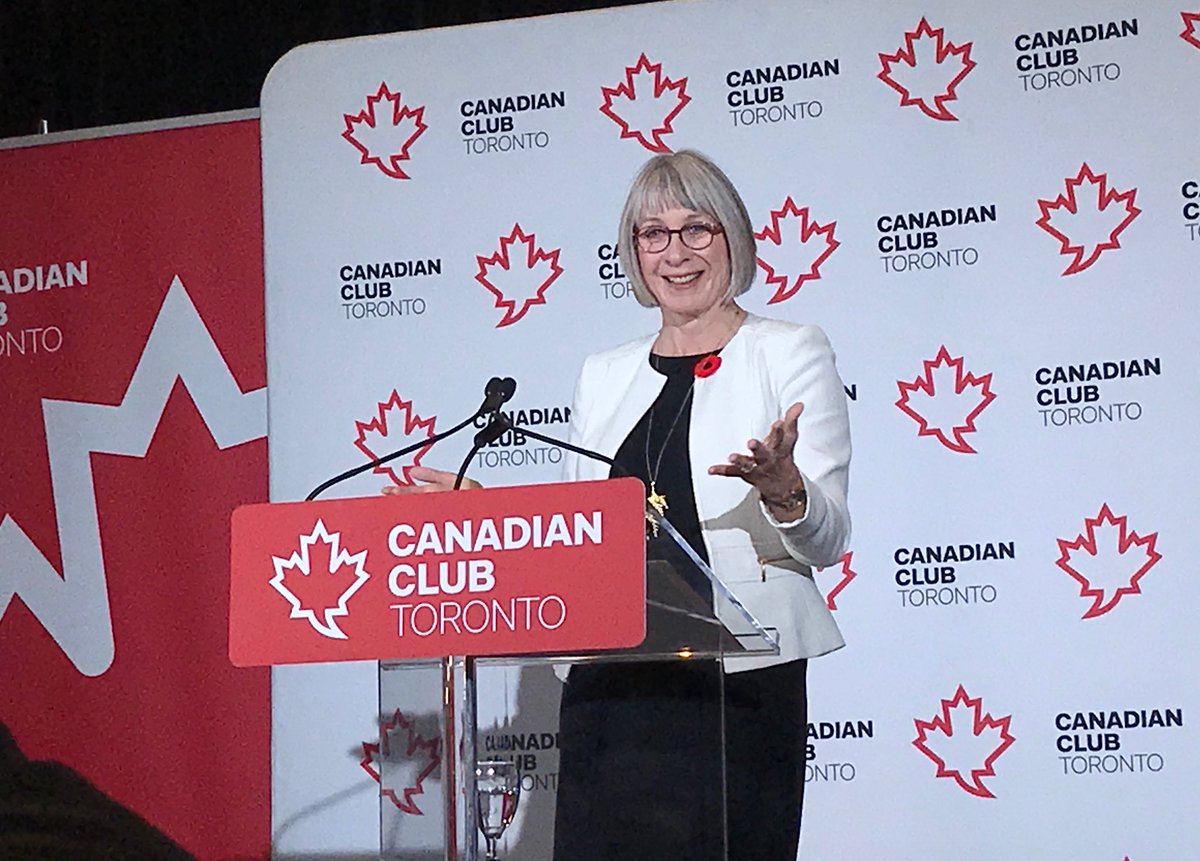Canada News
Government of Canada protects Canadians against food fraud in honey and other products

“When food is not properly labelled, Canadians aren’t able to make informed decisions on what to buy and feed their families. Ensuring accurately represented food is even more critical when food safety risks arise such as allergens not being declared. In the context of this ongoing pandemic, the government is aware of increased risks of food fraud and tackling this complex issue head-on.”
– The Honourable Patty Hajdu, Minister of Health (File photo: @PattyHajdu/Twitter)
The Canadian Food Inspection Agency (CFIA) is working to identify and mitigate risks in the food supply chain so that Canadians are protected from food misrepresentation, which is a common form of food fraud.
As part of the CFIA’s food fraud program, between April 2019 and March 2020, the CFIA sampled and tested domestic and imported honey intended for sale in Canada. The agency has now published its honey authenticity surveillance results (2019 to 2020).
Under Canadian law, honey cannot contain added sugars; otherwise it is considered adulterated and is not allowed to be sold as authentic honey in Canada.
Testing found 87% of the targeted honey samples were authentic, compared to 78% the previous fiscal year. In addition to the targeted sampling by the CFIA, samples were also collected by an independent third-party as part of the agency’s marketplace monitoring activity, and CFIA testing showed 98% of those to be authentic.
The CFIA took appropriate enforcement action on the honey that contained added sugars, preventing more than 83,000 kg of adulterated honey from being sold in the Canadian market.
Under the Food Policy for Canada, launched in June 2019, the Government of Canada invested $24.4 million over 5 years to the CFIA to crack down on food fraud in order to protect consumers from deception and companies from unfair competition. With this funding, the CFIA is conducting inspections, collecting samples, testing foods for authenticity, and gathering intelligence to better target its oversight activities.
The CFIA is also proactively monitoring any increased risk of food fraud that may have arisen from the uncertainties in the global food trade environment as a result of the COVID-19 pandemic, and finding effective solutions to mitigate them.
By addressing food fraud, Canadians can be confident that the foods they purchase are properly labelled and safe to consume. It also helps Canadian businesses compete more fairly in the Canadian and global marketplace.
Quotes
“When food is not properly labelled, Canadians aren’t able to make informed decisions on what to buy and feed their families. Ensuring accurately represented food is even more critical when food safety risks arise such as allergens not being declared. In the context of this ongoing pandemic, the government is aware of increased risks of food fraud and tackling this complex issue head-on.”
– The Honourable Patty Hajdu, Minister of Health
“Tackling food fraud is a key priority of the Food Policy for Canada which our government launched last year. It will not only protect consumers from buying deliberately mislabelled products, but also Canadian food businesses who must compete with inauthentic products. That’s why we are taking action and cracking down on incidents of food fraud in Canada.”
– The Honourable Marie-Claude Bibeau, Minister of Agriculture and Agri-Food
“The CFIA’s work to test for honey adulteration in Canada gives us a better idea of how much of an issue this is here in Canada. Honey adulteration is known to occur globally and is something we must continue to tackle. While the CFIA’s most recent results indicate fewer fraudulent cases, the elimination of adulterated honey from the marketplace is a world-wide objective and critical for honest honey producers.”
– Rod Scarlett, Executive Director, Canadian Honey Council
“Trust between retailers and their customers is essential. Consumers should never wonder if the label they are looking at accurately reflects what’s inside. That’s why grocery retailers in Canada are doing their part to mitigate the risks by working closely with their suppliers, investing heavily in food fraud prevention programs, and having safeguards in place to ensure the food they sell is authentic and real.”
– Diane J. Brisebois, President & CEO, Retail Council of Canada
Quick facts
- Funding through the Food Policy of Canada includes $3.1 million for Health Canada over 5 years to support the CFIA’s work through research, intelligence gathering and risk assessment related to potential human health risks.
- The funding allowed the CFIA to add an additional 14 employees to work on the food fraud initiative in 2019 to 2020. By 2024, a total of 29 employees are expected to be dedicated to tackling food fraud, with an additional of 3 employees for Health Canada.
- In 2019, Canada produced 80 million pounds of honey, worth $173 million. Canadian honey exports totaled nearly $54 million, down 31% from 2018.
- As part of its sampling and testing strategy, the CFIA tested a total of 275 samples of honey in 2019 to 2020: 127 from importers and domestic processors and 148 from retailers across Canada.
- The CFIA tested honey for sugar cane and corn syrup (known as C4 sugars) using Stable Isotope Ratio Analysis and for rice syrup and beet sugar syrup (known as C3 sugars) using Nuclear Magnetic Resonance technique.





















